Advertisement
'It's Quiet Right Now': Typically Bustling Before Lunar New Year, Boston's Chinatown Remains Emptier Amid Pandemic
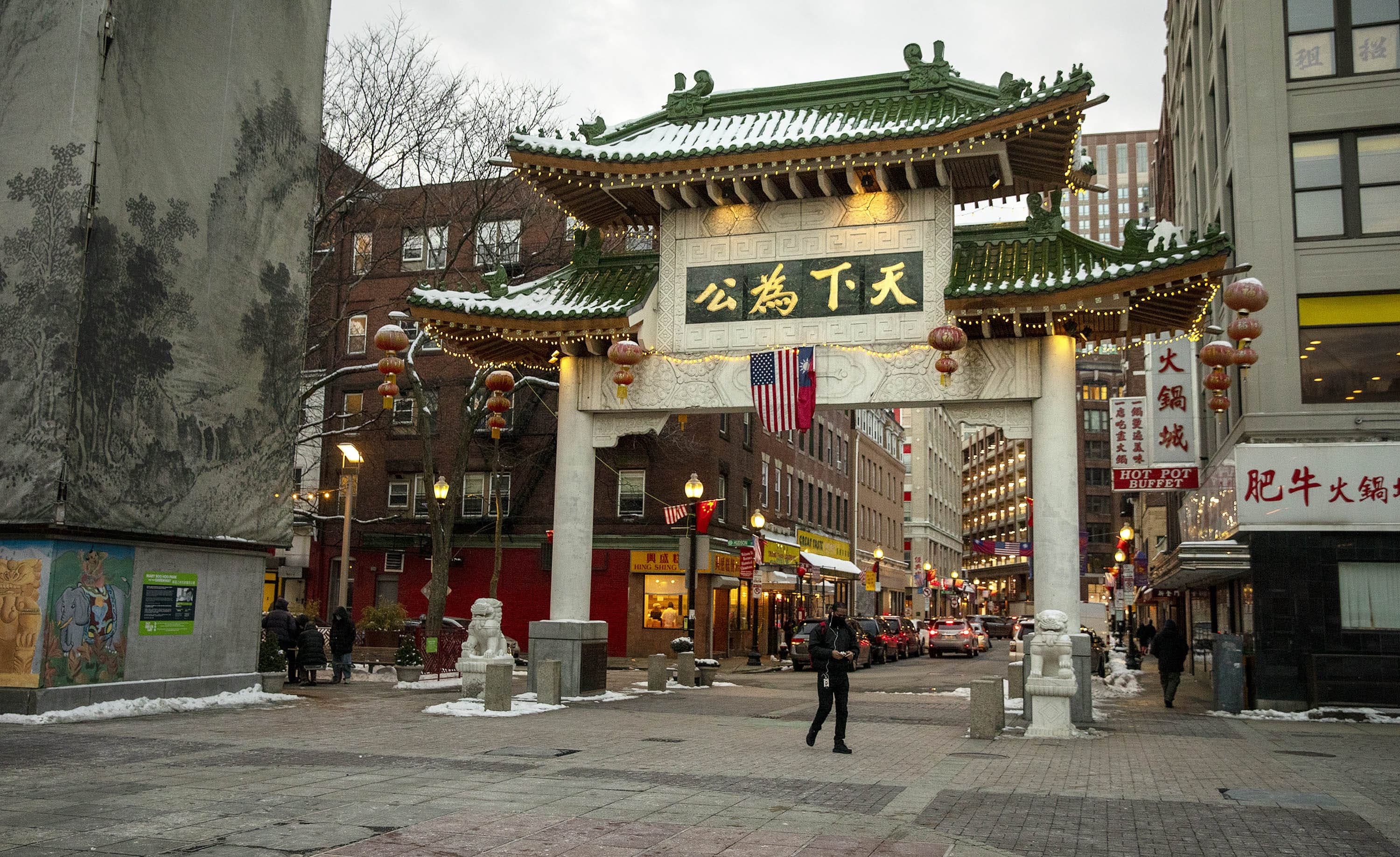
Lunar New Year is the time of year that’s usually a boon for Chinatown.
But Boston's Chinatown — like other Chinatowns across the country --- has been racked by a constellation of economic slowdown and ramped up racism and xenophobia. And for the first time anyone can remember, no one’s expecting to see parading troupes of dancing dragons and lions ringing in the new year.
Before the pandemic, Jackie Church gave tours of Chinatown. Two evenings ahead of the day the Year of the Ox begins, the scene at the district's iconic gate is quiet.
“Typically, these streets would be full of people right now," Church says. "There would be lanterns all over, lighting the way home for the ancestors to come home and have the big family reunion banquets, which are really important."
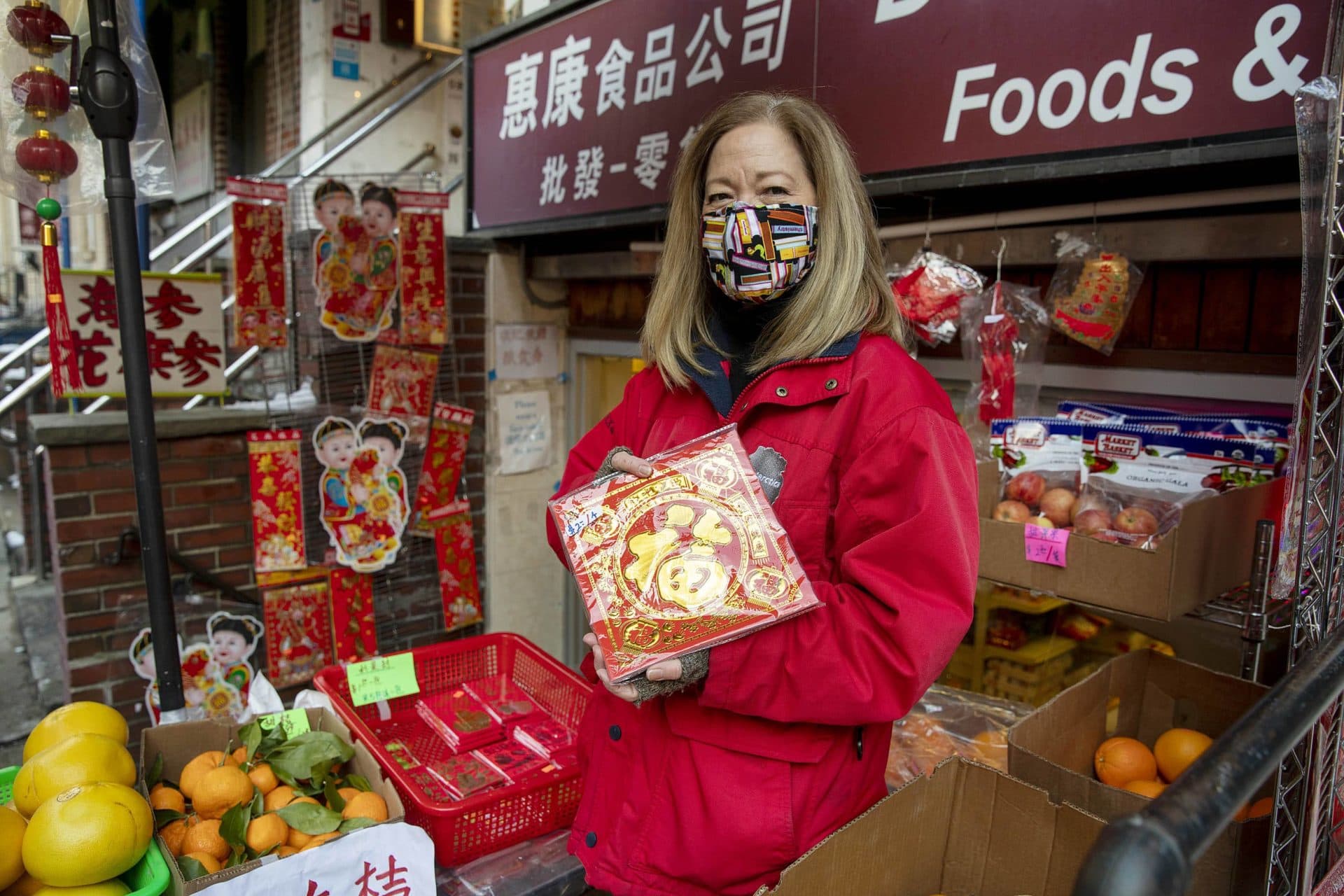
Restaurants and shops are open but empty. Scarce altars are in the windows. Any bustle you hear is businesses trying to stay alive, which could sound like crates of taro being loaded onto dollies or even shop music set to a high volume to lure passersby inside.
Church stops at the Delight Corner — a small, garden-level food store — to look for ingredients for a Lunar New Year Zoom cooking class. That's how she mostly shares the history of Chinatown these days.
The blaring music belies the emptiness of this store, which Kenny Lin owns.
“It’s quiet right now," he says, explaining that business has gone down about 70% since the last Lunar New Year. Since then, the coronavirus pandemic has proliferated. He says this year, he's hoping the new year brings "good health for all of us," and that COVID will be gone.
Church heads to the Jia Ho Supermarket, which, with several shoppers in the aisles, looks like an oasis of almost-normal. She explains that's because people are cooking at home a lot more these days.
Advertisement
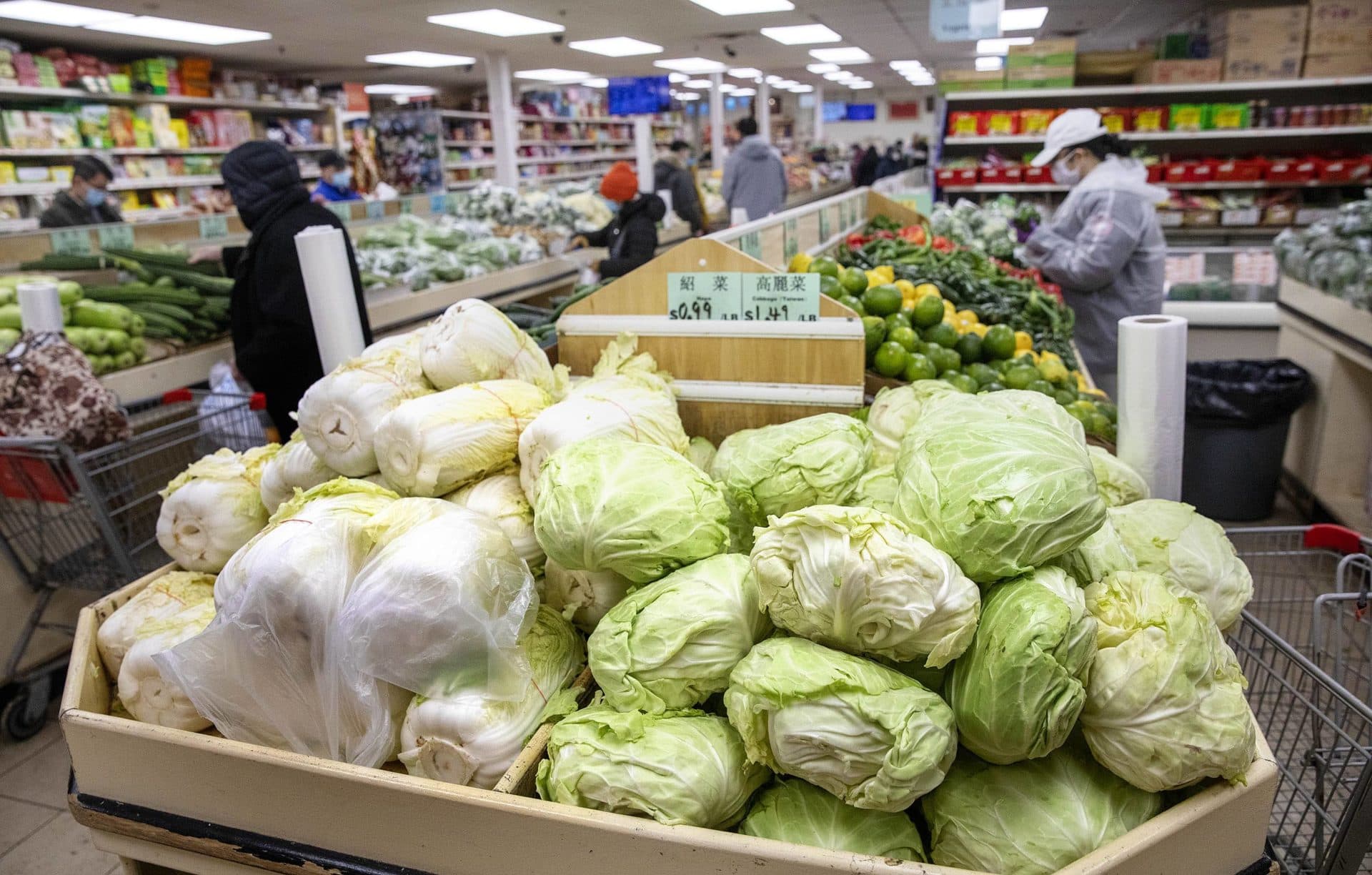
Church gets dumpling wrappers and cabbage for her Zoom class. At the Ho Yuen Bakery, Cynthia Yee eyes what's called "prosperity cake." Her family will have a virtual get-together, just like they did for Thanksgiving and Christmas.
“So we had virtual Zoom. Chinese New Year is about community and family," she says. "And don’t we love each other as a community and family? We show our love by not endangering each other."
While it isn't surprising more people are cooking at home, those decisions have proven rough for the district's restaurants. Church points to a couple of places that closed during the pandemic, and notes several restaurants that remain open would normally be packed with customers.
It's a sight that's concerning to Angie Liou, head of the Asian Community Development Corporation.
“These restaurants and businesses, they do provide a lot of jobs for a lot of the working-class immigrants who live in Chinatown,” she says.
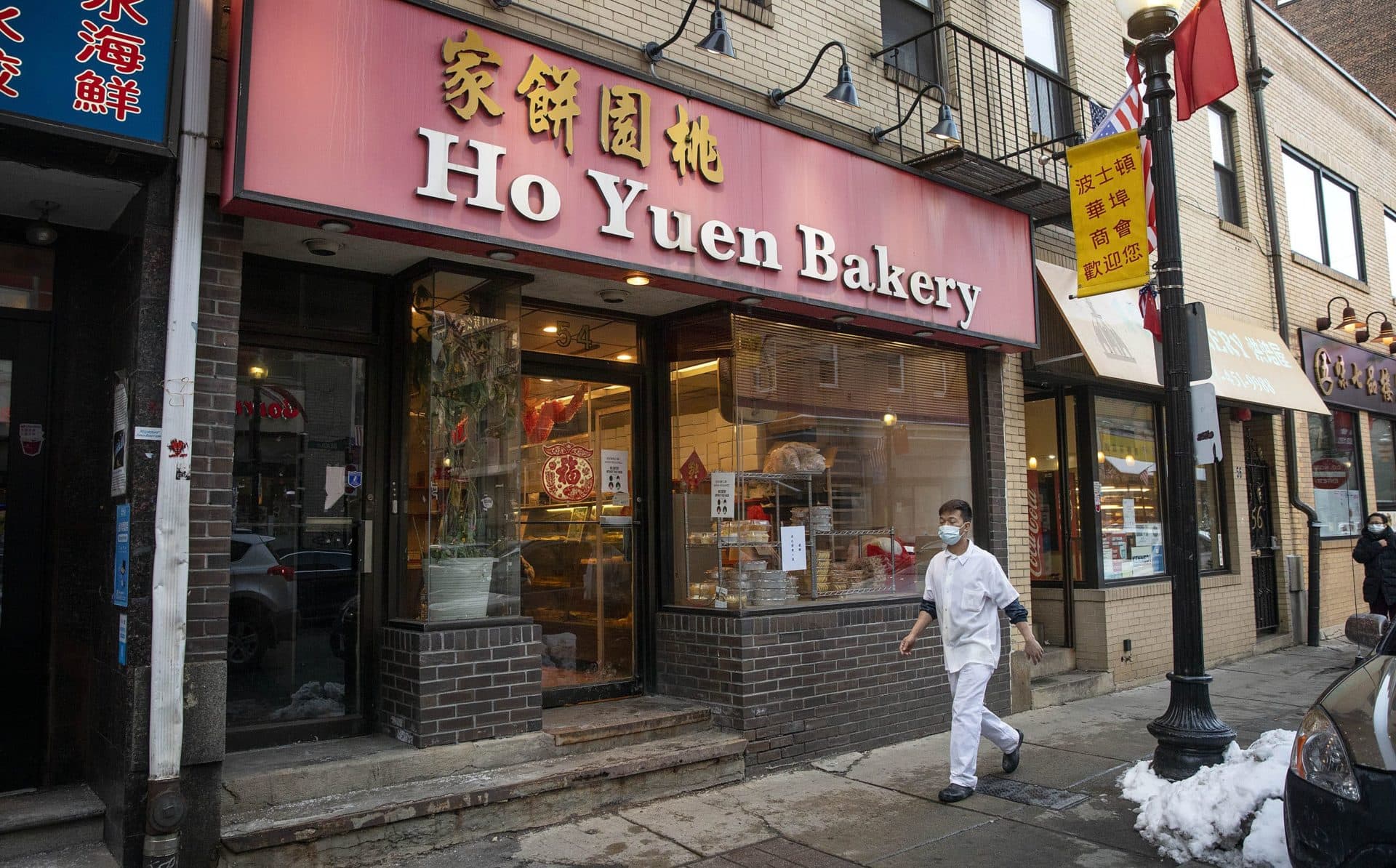
More people working from home and fewer international students walking the streets of Chinatown have contributed to the dip in business revenue, she adds.
“So, not having that income, it certainly has a ripple effect,” Liou says.
For Jeff Lin, that ripple is being felt. For 12 years, he has managed an Asian crafts and decorations store called Essex Corner. And with people opting to skip big gatherings, there are fewer people decking out their homes.
He says he was forced to close his store last March until August.
“I mean, you don’t even have the feeling a new year is coming," he says. "There’s no atmosphere. People come to Chinatown besides for food and bubble tea. They’re here for the culture and the events and everything."
But everything's essentially been canceled. Still, Lin sees the vaccine as the light at the end of the tunnel.
"I’m hoping it would be back to normal," he says, "that everyone will move on and put this behind us."
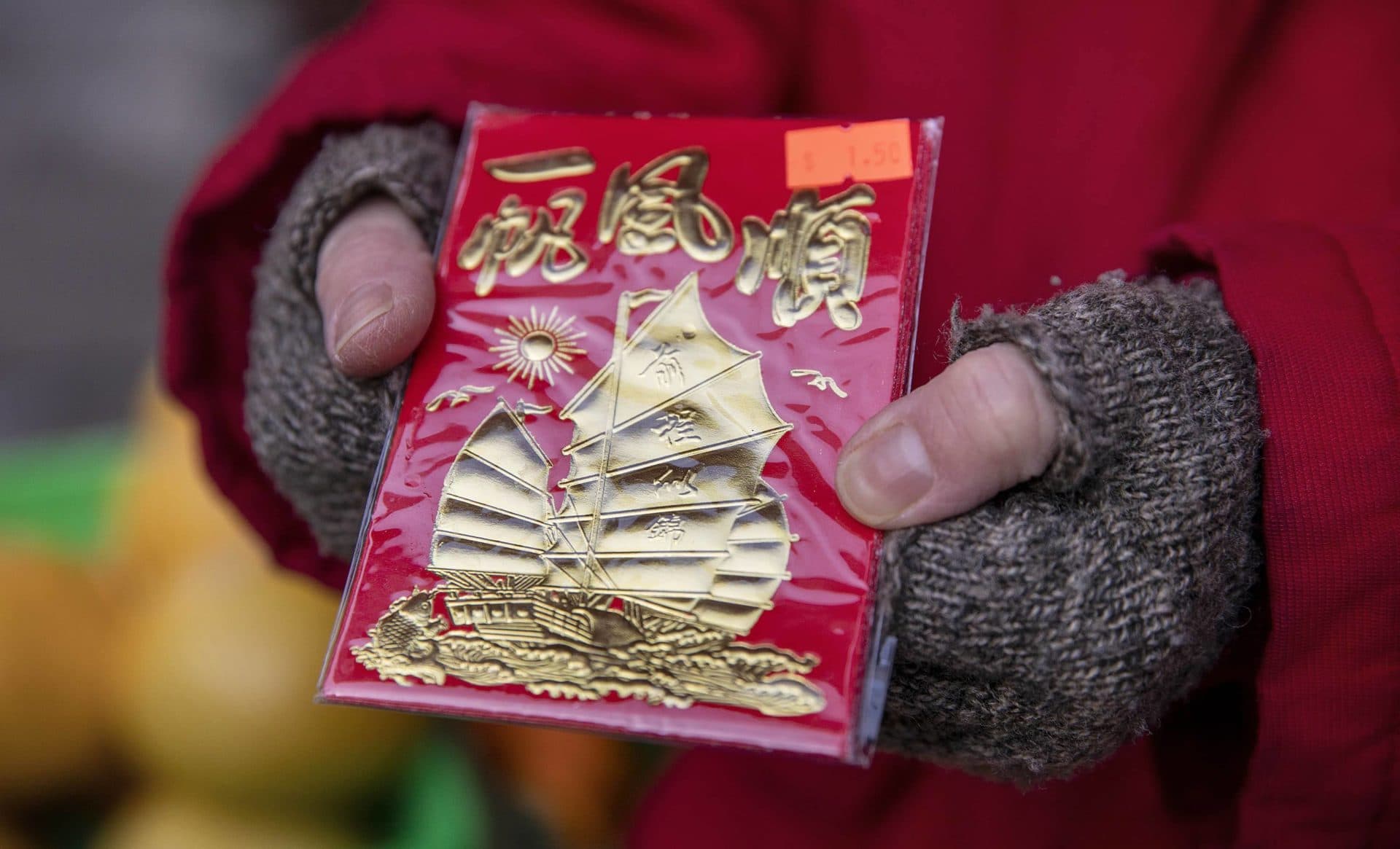
This segment aired on February 13, 2021.
